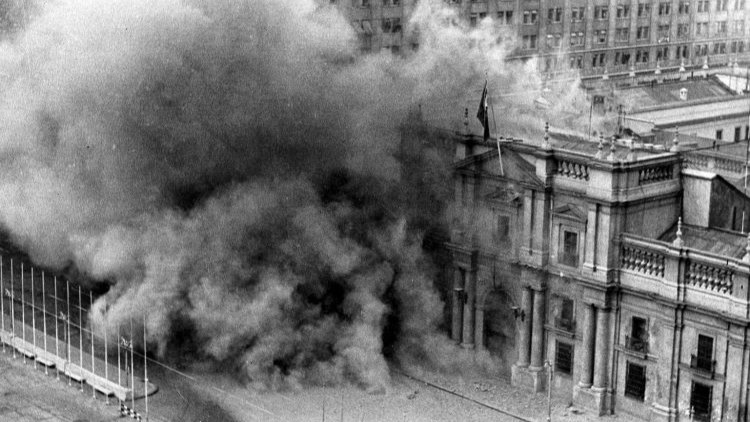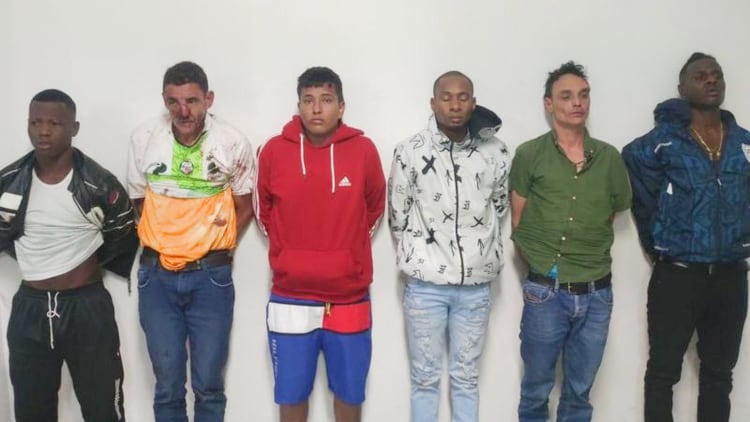Eduardo González
September 11 marks the fiftieth anniversary of the military coup d’état against the socialist president of Chile, Salvador Allende, which gave rise to the dictatorship of Augusto Pinochet in a country that had been characterized by having one of the most stable democracies in Latin America. The events coincided in Spain with the final stretch of the Franco dictatorship, which immediately recognized the new military regime.
Contrary to expectations, relations between Franco’s Spain and Salvador Allende’s Chile, despite their obvious ideological differences, were good. As the scholar Cristina Luz García Gutiérrez of the Universidad Autónoma de Madrid recalls (“La reacción de España ante el golpe militar en Chile”, Revista electrónica de la Asociación Española de Americanistas. 2011), the Spanish government had opted to prioritize relations between two friendly countries over the ideological aspect, as it had already done with other Latin American countries. A clear example was Fidel Castro’s Cuba, a “preferential” partner for Spain in the region.
On the other hand, the news about Chile had a great impact on Spanish public opinion and the bombing of the Palacio de la Moneda (seat of the Presidency) by the coup plotters not only brought back memories of a past that Spain wanted to forget, but had been directed against a project, that of the Unidad Popular (UP), which had sown many illusions in the increasingly active opposition to Franco. Therefore, the events in Chile inevitably took on an internal aspect in Spain, where Franco’s personalist dictatorship was beginning to agonize “at the same pace as the dictator’s health”, recalls the author.
The Spanish government already had indications that something was afoot in Chile thanks to the information that, throughout the previous year, had been provided by the Spanish Embassy in Santiago on the deterioration of coexistence in the Andean country. However, the coup d’état in Chile caught the government of Admiral Luis Carrero Blanco (to whom Franco had ceded the Presidency of the Executive in June of that year and who had only three months left to be assassinated by ETA) with a changed footing and brought to light the existence of nuances within Franco’s own regime.
Enrique Pérez Hernández
At that time, at the head of the Spanish Embassy in Santiago was Enrique Pérez Hernández, who had not only contributed to the good relations between Spain and Chile but also personally faced the first hours of the coup d’état by welcoming in the Embassy a group of Spaniards whom he helped to leave the country.
The most paradigmatic case was that of the Valencian Joan Garcés, who had been Allende’s advisor and whose asylum and subsequent exit from the country generated a great media impact that the military subsequently made the ambassador pay for. Pérez Hernández was removed from his post just two months after the coup d’état, probably due to Chilean pressures. The ambassador himself later recalled (in a letter to the Undersecretary of Foreign Affairs, Gabriel Fernández Valderrama, dated September 21, 1973) that one of the most dangerous moments for the Embassy occurred when a military patrol, with a captain and a lieutenant in command, surrounded the ambassador’s residence to ask if Joan Garcés was in asylum, something Pérez Hernández denied.
The ambassador acted as he did out of the conviction that his job was to protect the nationals of his country above his ideology, but it should be pointed out that, despite this action and his good relations with Allende, Enrique Pérez Hernández himself did not conceal in his first dispatches to Madrid his joy at the new change of course in Chile, which, in his opinion, “had saved Chile from Marxism”.
The “Estrada Doctrine”
Immediately after the triumph of the coup d’état, the Military Junta asked the Spanish Government, through the Embassy, for urgent aid consisting of blood plasma, antibiotics, bandages and baby food. In response, the Council of Ministers approved 22 tons of aid, valued at ten million pesetas -including air transport-, which was delivered in equal parts to the Armed Forces and Caritas. Such was Spain’s interest in helping the military junta that a special flight was chartered to deliver the aid to Chile on September 22, only eleven days after the coup d’état and in spite of the suspension of air traffic in the country. The arrival was broadcast by Televisión Española. In any case, the same flight was also used to repatriate to Spain four people in asylum in the Embassy (Joan Garcés, his brother Vicent, the former Chilean Minister of Agriculture Ernesto Torrealba and the Spanish scientific journalist Luis Ángel Fernández Hermana).
Around the same time, the Military Junta announced its intention to respect “its international obligations” and, therefore, the Chilean Ministry of Foreign Affairs asked the Spanish Embassy to “bring the above to the attention of your Government with which the Chilean Government wishes to maintain the best relations of friendship”.
Based on this note from the new Chilean dictatorship, and at the proposal of the Spanish Embassy in Santiago, García Gutiérrez continues, the Council of Ministers of September 14 (only three days after the coup d’état) opted to apply the so-called “Estrada Doctrine” in international relations, according to which Spain did not need to recognize the new government because it considered that relations had not been interrupted. “It is an inveterate practice in cases such as the present one, of regime change, not to formulate any explicit recognition on the grounds that relations have not been interrupted,” wrote Ambassador Pérez Hernández that same day. This decision, which implied recognition of the new regime, was warmly welcomed by Pinochet, who thanked the ambassador personally in his first interview.
News of the repression
However, news of the very serious human rights violations perpetrated by the new Chilean authorities in Chile began to stir consciences even in Franco’s Spain. A report by the Sub-Directorate General for Latin American Affairs of the Ministry of Foreign Affairs, drawn up from information gathered by the Embassy in Santiago and brought to the Council of Ministers on September 21, 1973, reported that “the repression to which left-wing extremists are subjected is very harsh.” “Executions are carried out without prior trial and reach not only those caught with weapons in their hands or resisting, but also saboteurs and political activist leaders of the Popular Unity,” the text continued.
At the beginning of October, the Foreign Ministry continued to gather information on the heavy repression in Chile and the ambassador himself reported that the situation was absolutely under control, but “at the point of bayonets and machine guns”. “The repression has been very hard and continuous, it is estimated that the number of dead is around 4,000, half of whom have been killed in combat (resistance in the factories and suburbs) and the other half shot without previous trial”, pointed out Enrique Pérez Hernández, who explained in detail the appearance of corpses in the ditches or in the Mapocho River.
In these circumstances, the Embassy felt obliged to look after the Spanish community in Chile and, in fact, most of the diplomatic notes from October to December 1973 between the Spanish Embassy in Santiago and the Chilean Ministry of Foreign Affairs consisted of requests for safe-conducts for the departure of Spanish citizens or requests for information on Spanish detainees.
The first case of a Spaniard murdered by the dictatorship was that of the priest Joan Alsina, advisor to the Catholic Action Workers Movement and whose death was picked up by the different diplomatic offices as part of the collateral damage of the first days, although it was not presented as a political assassination. From Alsina’s case, the ambassador obtained the commitment of the Chilean Ministry of Foreign Affairs to refer to the prosecutors the cases related to the Spaniards so that the death penalty would not be requested against them, a promise that, according to the author, was “easy to fulfill” because the murders and disappearances took place “clandestinely and without previous trial”.In addition, in the aforementioned first interview with Pinochet, the Spanish ambassador told the dictator that “moderation and clemency could bear positive fruit in the short and long term”.In his reply, Pinochet assured him that he would “take special care, thanking him sincerely for his remarks”.







